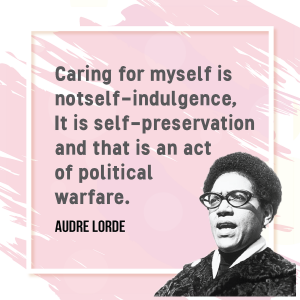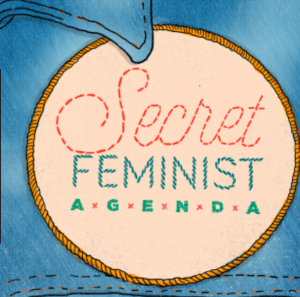For as long as I can remember, I’ve struggled with the need to constantly achieve. A deeply felt belief that productivity = worth. I hear a relentless voice telling me to do more. But more is never enough. So what do we about it?
“What do you do?” we ask people when we meet them. “What have you been up to?” we greet friends. “How was your day?” we say to loved ones, usually anticipating a laundry list of ticked boxes.
We don’t ask people who they are or what they feel as much as we ask them what they’ve done. And when you’re sick like me and you don’t feel you have much of an answer, this question can cause immediate feelings of guilt and shame.
I struggled to write this post, because this is such a difficult topic to unpack. The more I researched and the more I thought about it, the more complex it became. I found myself deliberately procrastinating, which of course dented my self-worth because I wasn’t crossing this off my To Do list. The voice started to niggle at me. Sometimes, for some people, that voice can be a powerful motivator. For me, it’s a constant source of anxiety. It doesn’t help me doing things, it reminds me of all the things I can’t do, and makes the things I can more difficult. In the end, I had to break the thing into pieces in order to see it properly, so this will be a rare Two Part post. Bear with!
I know that my belief system around productivity was planted very young, and watered healthily by Western society and capitalism. I also know I’m a text-book perfectionist and Type A personality. The Friend I most identify with is Alternate Universe Phoebe in that one episode where she has such high stress career that she has a heart attack and gets fired, but breaks herself out of hospital and returns to the office, trying to work while hiding behind a potted ficus in a hallway.
I saw that episode years before I, too, worked myself into a catastrophic health event, continued to answer phone calls in hospital, and broke out during the weekend so my doctor couldn’t stop me.
Recently, I started to feel a little more well, and of course I took this as an indication that I should up my work hours and correlating stress levels, until I suffered a sudden and monumental migraine, and threw up in my hands in my hallway at home. At least I wasn’t trying to hide behind a ficus at the time.
I know the origins of the belief system, and I know the things that are helping to perpetuate it – shame that I can’t work, wanting to feel worthy, wanting to contribute to society. Suspicion of judgement from others, even unverified. The desire for financial independence. The second-wave feminist ideal of the self-made woman. Everywhere you look, the pressure mounts.
When I raised this issue on Twitter, it got a lot of response. It’s something many of us struggle with, and that makes sense, considering the messages we’re all subject to. Do more, climb literal mountains, you can sleep when you’re dead. I know very few people who stick to a “standard” 9-5, 40 hour week anymore, which is crazy because even 40 hours has been denounced as both unproductive and unhealthy. Even if you somehow manage to spend only that inside an office, we’re now accessible anywhere. The expectation to be constantly on is omnipresent, and whether we do or don’t, can or can’t, respond to that, there’s a fallout.
*
Eating and body positivity
My illness isn’t going anywhere. To adapt, I need to shed my beliefs and adopt new ones. That’s no easy task; my self-value has been linked to an achieve-o-meter for as long as I can remember. I’ve always “rewarded” myself for completing tasks – study for half an hour, have some chocolate. Go for a walk, then you can read a book. If x, then y. The problem, of course, is that I can no longer x, but I still need to y. (That sounds like a sex joke. It can totally be a sex joke if you want it to be, I’m not here to judge).
I realised, doing the research for this, how much of my reward system was actually based around basic needs. Sleeping isn’t a reward. Eating isn’t a reward. But in my head, that’s how things are set up. I wonder how many other people feel like this?
Quite a few resources emerged – thank you to everyone who linked me things – and one of the suggested frameworks was placing the concept of body positivity over the top of the negative thought pattern.
This was really interesting to me, because I’ve struggled with this concept. I’m all for it as a theory, and I support other people’s choices, and body diversity.
(Taking some deep breaths here). I have an eating disorder. It’s something I have touched on in the past, because though I’ve struggled with eating problems and body image since I was a child, it wasn’t until I got sick and my dietary advice was all over the place, my weight see-sawed, I was suddenly intolerant to a bunch of foods – then anorexia really started to take over my thinking and behaviour. And it took until earlier this year, when I’d basically stopped eating and my methods of hiding and lying weren’t working anymore – for me to try to start facing the problem.
The way I’m thinking about my body – wanting to punish it for not looking how I want and for being sick, and the way I’m thinking about food – as a reward you can only have if you’ve earned it, which you can’t because you can’t do things so you don’t deserve it… I realised that thinking isn’t healthy thinking that most people do. It’s anorectic thinking and I needed to find a way out of it.
I don’t think actually that the eating disorder thinking and the productivity thinking are necessarily two different entities. They’re both ways of controlling and punishing myself, and also, in contradiction, ways of trying to find self-worth.
Because of this, I’ve always slid uneasily away from discussions about body positivity. It feels unattainable and why would I feel positive about a body I can’t control, in image or in health?
Then, someone linked me to this article in The Gaurdian about “body neutrality.” And I went oh. Because this isn’t about trying to love your body unconditionally, or forcing yourself to accept it or stop hating it against the relentless tide of inner and outer dialogues. It’s about being neutral – “I have a body. This is the body that I have.” And I think that’s actually pretty powerful. To me, that feels like a radical act. I don’t know how I’m going to internalise it, but I think it starts with using that language as often as possible. This is my body, I’m neutral about it. And don’t even caveat that with “It’s not perfect/doesn’t look great/isn’t thin enough/is a sick body,” or whatever your own judgement of yourself might be. Just: This is my body. I’m neutral about it.
Being neutral about a body is also about, for me, acknowledging the basic things it can do rather than focusing on those it can’t. And by acknowledging those things, I can acknowledge that I need to put food into my body in order to enable it. It’s like a car that needs fuel. Thinking of it this way creates a rhetoric where food isn’t a reward, it’s a necessary top-up, because you run out simply by operating. And there’s only so long you can run on empty.
*
What about Self Care?
(This is not a euphemism for masturbation, unless you want it to be, in which case, go right ahead. I’m not here to judge).
A few people linked me to articles about self-care and how self-care is a political feminist act etc etc and I know this, I know this to be true, I’m extremely familiar with the concept, but again, it feels unattainable to me.

What I do appreciate about Audre Lorde and others’ approach is that it’s inclusive. By saying self-care is a political act, you’re acknowledging the power of disenfranchised and marginalised people – women, people of colour, people with disabilites, poor people. Because we don’t necessarily have the capacity or ability or safety to be political in any other way. And because many of the expectations of how these these groups of people should spend their time are profoundly sexist, racist, ableist and classist – eschewing those expectations has power.
Like body positivity, trying to apply the practice to my own life feels profoundly uncomfortable. And I know that capitalism has a large role to play in that, because we’re encouraged to work, constantly. Sexism has a role to play in that, because as a woman, I’m expected to perform physical and emotional labour freely and abundantly, and those things don’t register on the achieve-o-meter in the same way. Classism has a role to play in that, because as a poor person, I’m expected to be pulling myself up by my bootstraps. There’s no pride in poverty. How dare I practice self-care when I’m a beneficiary?
I’ll never forget this one particular Stuff comment on a news story about me several years ago. “Look at her hair,” it said. “That looks expensive. If she can afford that, what’s she complaining about?”
The hilarious thing about that was that it was an expensive haircut – one I’d had before I got sick. The commenter was right; a beneficiary probably couldn’t have afforded it – but they should be able to. And what we spend our money on, despite the constant pearl-clutching cries of “my tax dollars!” isn’t anyone else’s business.
Other comments suggested that I seemed pretty active on the internet, so it shouldn’t be a problem for me to get a job. It was a constant tide of vile criticism, one that eventually caused me to stop being as public, turn off comments here, and abandon my old Twitter. Faced with this sort of rhetoric, it’s really no surprise that encouragement to practice “self care” feels difficult and uncomfortable.
*
Lazy women and eating the rich
The next thing I did (while I washed the dishes, because heaven forbid I sit still for twenty minutes) was listen to a podcast someone sent to me: this episode of The Feminist Agenda.

This was the point I decided to split this into two posts because I feel like that’s more than enough to digest and there’s still a lot to say. So I’ll go into that podcast and a few other things in Part Two – coming soon!
*
